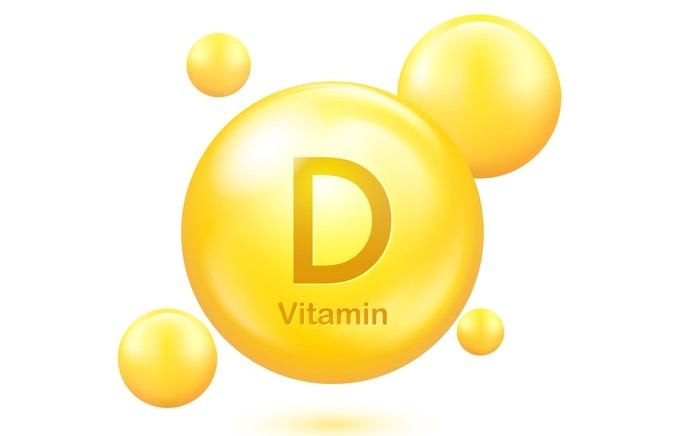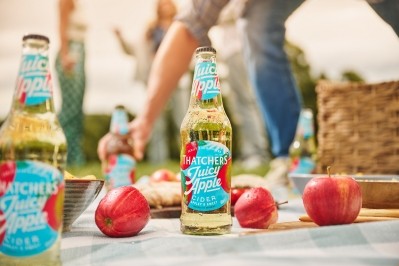Could new nutrient microencapsulation tech revolutionize Vit D fortification?

While vitamin D fortification has been around for decades, protecting those vitamins over long periods of time in packaged goods has remained a challenge.
Taking a leaf out of the book from drug delivery and supplement delivery systems, Xampla believes microencapsulation tech can overcome the problems.
With giants such as Yili and Britvic already on board, Xampla has now opened up availability of the tech to FMCG brands and supply partners across the UK with a distribution partnership with food manufacturing supplier Lehmann Ingredients, announced this week.
Protecting vitamins
Xampla was founded in 2018 as a spin-out from the University of Cambridge, seeking to develop and commercialize its new tech.
Its main mission was rooted in packaging: creating and commercializing alternative materials to plastics produced from sustainable, natural feedstocks that biodegrade completely in both marine and soil environments.
But it’s also found an opportunity to improve microencapsulation tech. In 2022, it secured £1m in funding from the UK Government’s innovation agency, Innovate UK, to scale up its microscopic digestible capsule engineered from plant proteins.
This microencapsulation material uses pea protein to make microscopic capsules that protects vitamins within liquid.
These capsules are insoluble – meaning they stay intact in beverages or dairy – but they are digestible. That means nutrients are released in the upper gut for optimum absorption and impact.
Why improve Vit D fortification?
A number of products – including beverages, yogurts and breakfast cereals – are already fortified with vitamin D. And there’s plenty of these on the market – vitamin D fortification has been happening for almost a century.
So what advantages does the new microencapsulation tech bring?
“Traditional fortification processes face significant challenges since added vitamins and nutrients to food and beverages are vulnerable to degradation over time with exposure to UV light, pH imbalance and pasteurization,” Stanley Mitchell, Head of Business Development at Xampla, told us.
“With these stability challenges, food and beverage brands can either avoid claims based on the nutrients added, or opt for overage of active ingredients, which is both costly and wasteful.”
Xampla’s technology encases active nutrient ingredients within a stable, digestible capsule made from plant proteins.
“Beyond transportation and storage, this innovation ‘micropackages’ the nutrients, allowing them to survive digestion in the stomach and be released in the small intestine,” explained Mitchell. “This process optimizes the health benefits by delivering nutrients intact and at full efficacy to consumers.”
Vitamin D fortification
Vitamin D is a fat-soluble vitamin that is obtained from sun exposure and supplements. It's found in a very limited number of foods - such as fatty fish - but since the 1930s has been added to products such as fortified breakfast cereals and yogurt.
Despite Vitamin D's association with orange juice, this vitamin is provided through fortification, rather than as a natural source. Meanwhile, almost all of the US milk supply is fortified with around 3mcg vitamin D per cup, and many plant-based alternatives are similarly fortified to give comparable nutritional benefits.
Vitamin D helps the body absorb calcium – protecting it from osteoporosis – and helps muscle, nerve and immune functions.
But in fortified products, essential nutrients degrade over time with the impact of UV light, low pH and high temperatures. To compensate for that, many brands opt for overage (excess) of nutrients to maintain health benefit claims – which involves added cost.
Xampla’s microencapsulation tech eliminates the need for overage by ‘significantly improving stability and protecting the active ingredients from external factors’. That also improves shelf life.
Britvic and Yili collaborations move tech into the commercial space
Xampla's big break for the tech came in 2022, when, backed by the UK government grant, it partnered with UK soft drink giant Britvic to test the tech in beverages (it was an opportune partnership: vitamin fortification – and protection – was a key part of the research for Britvic: a company that started life in 1845 as The British Vitamin Product Company).
“As our first partnership for microencapsulation of vitamin D, they have helped us to optimize our technology to deliver high-performance encapsulation for vitamin D in beverages," explained Mitchell. "This technology can be used across many different vitamins and nutrients, and we now work with other food and beverage brands interested in enhancing their products in similar ways.”
Another factor that became clear through the Britvic partnership was the opportunity for the tech with clear bottles. Clear bottles are generally preferred by consumers, who like to be able to see the beverage inside when they make their purchases (Britvic’s research also suggests that people are 40% more likely to recycle clear bottles over colored ones).
But clear bottles normally provide a downside for vitamin D as they let in more UV rays and thus lose the necessary protection. Microencapsulation tech, however, can protect vitamins in this situation.
And another key partnership was launched just last month: the tech will be piloted by dairy giant Yili. This partnership will start by testing and validating the tech in a range of dairy products via the Yili Innovation Centre Europe – with the partnership marking a ‘pivotal step’ in scaling the tech from proof of concept to full scale production.
Here, it's the unique set of challenges for dairy that are being addressed - such as heat-treated and sensitive dairy products.
“We are partnering with Yili to deliver fortified vitamins and nutrients in a new range of products," said Mitchell. "The company is highly active across all dairy categories, including liquid milk, infant and adult milk powder, yogurt, ice cream, cheese, and more.”











